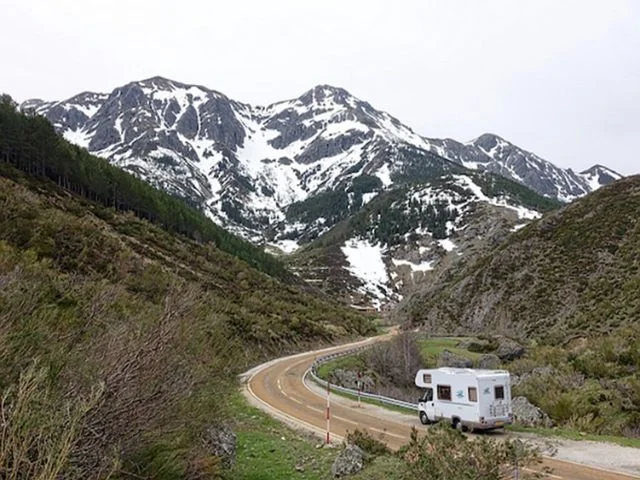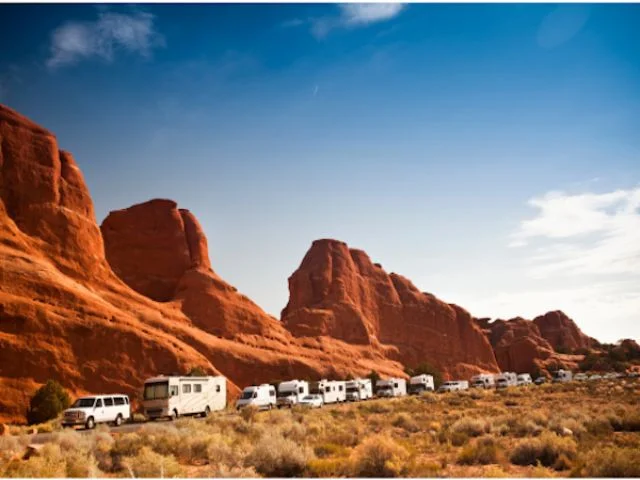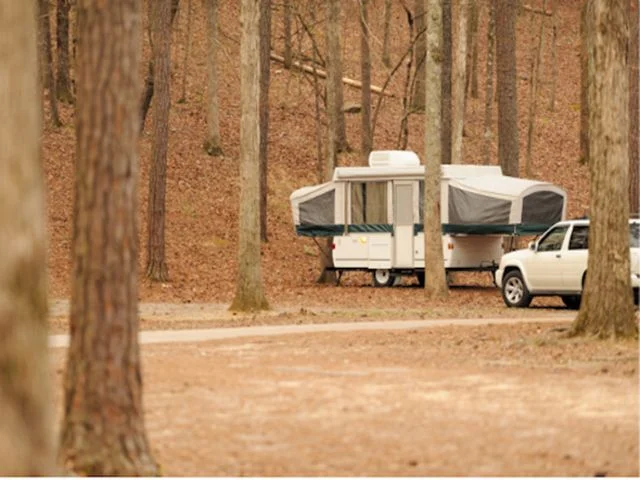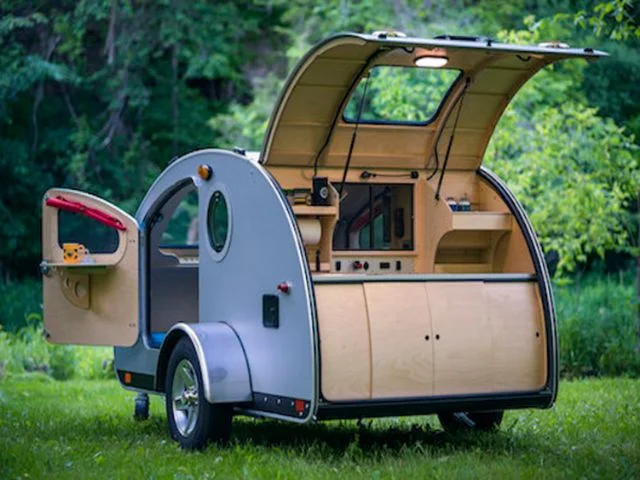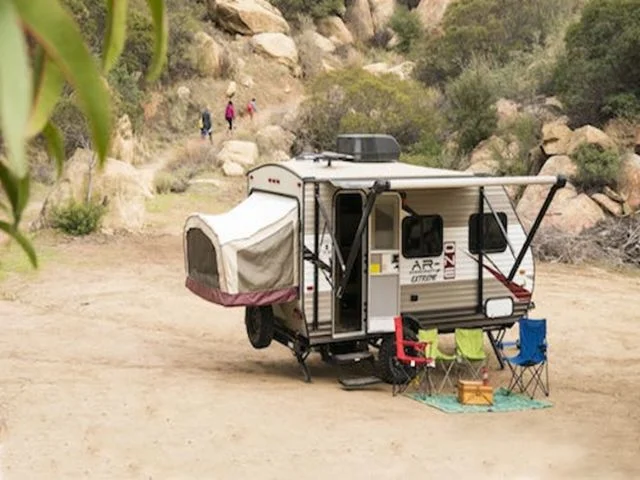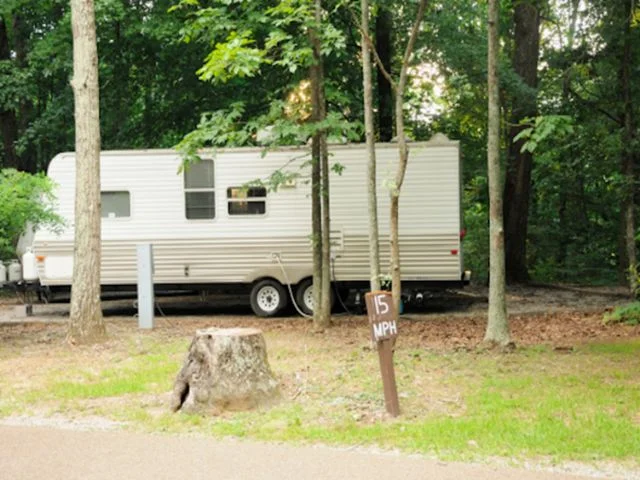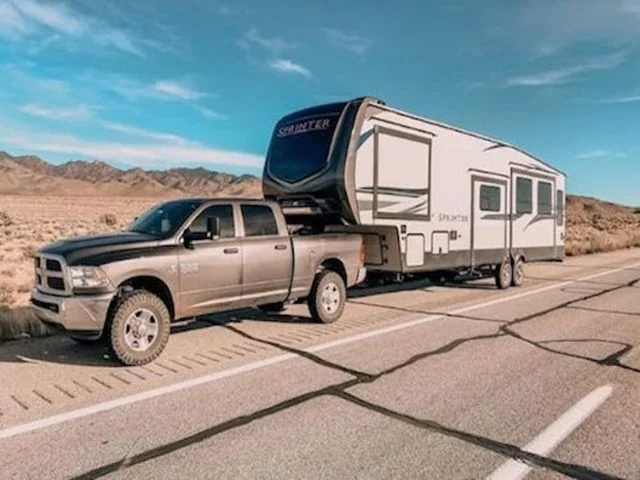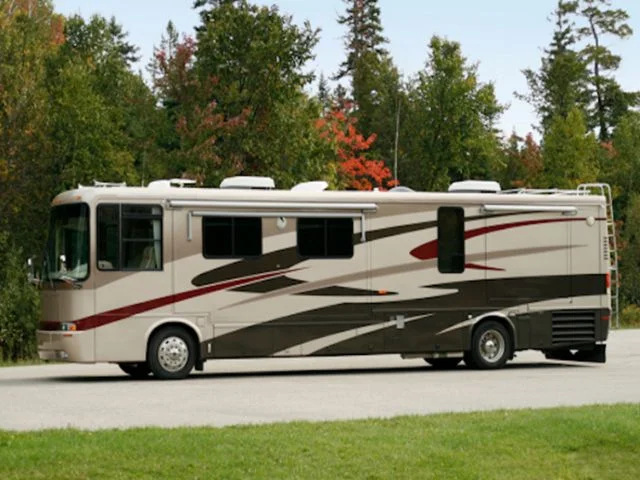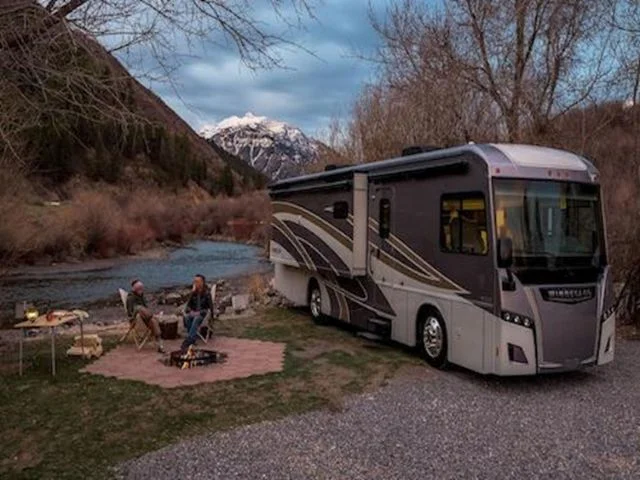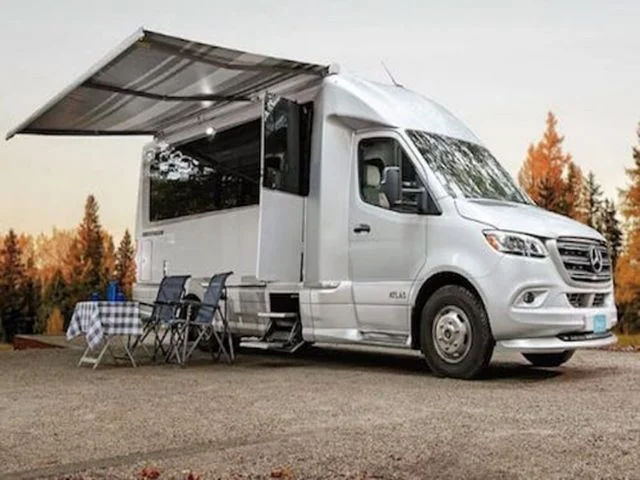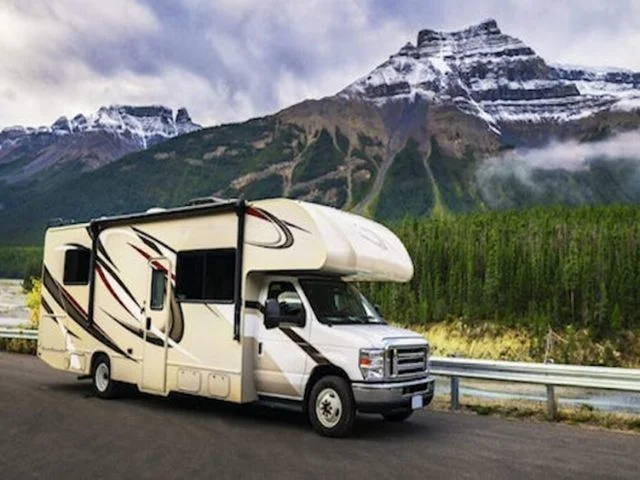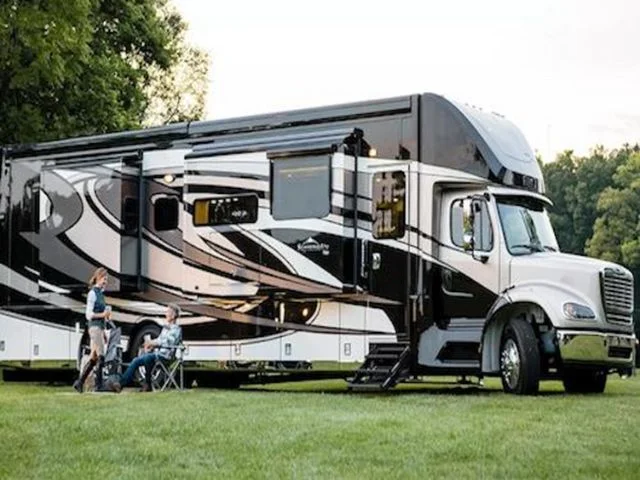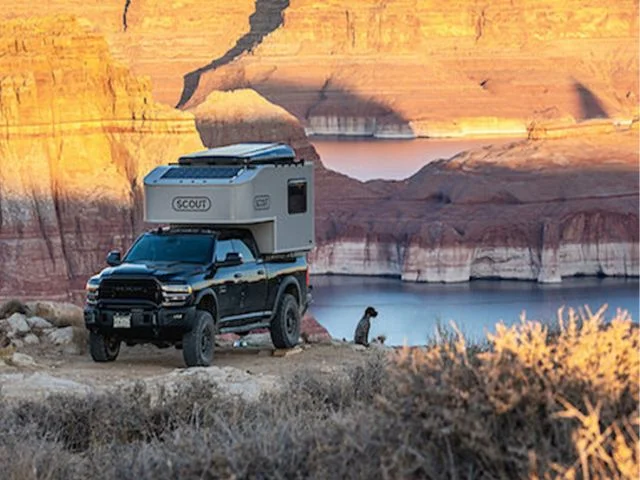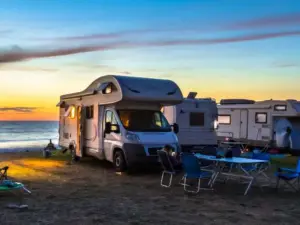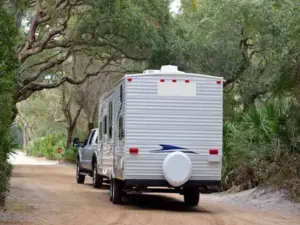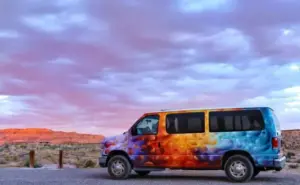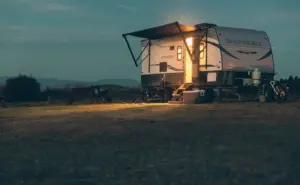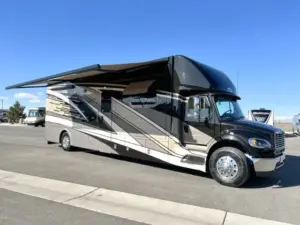From quick weekend staying in RV Parks to a cross country adventure and everything in between, traveling with an RV or trailer will make you feel like you’re living in the lap of luxury.
With the expansive range of RVs to choose from, covering a broad scale of sizes, cost and accessibility, how do you know which type is right for your big RV road trip?
When comparing RV, camper, and travel trailer, it’s helpful to understand their definitions and how they differ.
“RV” stands for “recreational vehicle,” and is known by many as a “home for wheels.” RV is an umbrella term for several different types of vehicles, including motorhomes, camper vans, and also includes towed vehicles, like camper trailers, fifth wheel campers, and non-folding camper trailers.
Still confused? This blog article will offer you a fast overview of as to what’s what. That way, you’ll have a better idea of which type of RV is most suited to your needs, whether you’re just looking for RV rentals for upcoming trips or you’re starting the research process to buy you very own brand new RV.
Read here about the differences between RV vs camper vs travel trailer.
Read here about travel trailer rental options.
What’s the Difference Between a RV, Camper and Travel Trailer?
RVs are self-propelled and do not require the support of another vehicle to transport them. They range in size from van-like to massive motorhomes that may function as a permanent home.
Whereas camping trailers or campers, are made specifically for the camping experience. They possess the ability to drive on rough terrain, withstand harsh elements, and store belongings in tight spaces.
All camping trailers have no engine and must be pulled by another vehicle to move it from one place to the next. But you can park your camper for extended periods without a car or truck attached to them.
Travel trailers, on the other hand, are one of the most diverse types of campers because it encompasses all non-folding camper trailers. They range in size from a compact teardrop trailer to a large and spacious fifth wheel trailer.
Travel trailers main job is to provide a comfortable place to sleep and camp. They are larger, with more amenities allowing someone to live in the trailer for extended periods of time.
Trailer and Recreational Vehicle Similarities
RVs and trailers share several similarities:
- They both provide mobility, allowing you to travel and explore different locations while having your accommodations with you.
- Both RVs and trailers have living sections that might include sleeping areas, kitchens, dining areas, restrooms, and other amenities like as entertainment systems or outdoor awnings.
- They both provide a camping experience with the convenience of having essential amenities and comforts readily available while being out in nature.
Trailer and Recreational Vehicle Differences
Here are the most significant differences between RVs and trailers:
- Trailers are dependent on a separate tow vehicle to transport them, while most RVs have their own built-in motor and can be driven independently. This means that trailers require a towing vehicle, such as a car or truck, whereas RVs are self-propelled.
- RVs generally offer more interior living space and amenities compared to most trailers. RVs can have multiple rooms, larger kitchens, spacious bathrooms, and additional features like slide-outs that expand the living area when parked. Trailers, on the other hand, typically have a more compact design and offer more limited space.
- RVs provide the advantage of immediate accessibility since they don’t require hitching or unhitching from a towing vehicle. Once parked, RV occupants can easily access their living spaces, use the restroom, or prepare meals without any additional setup. Trailers, however, require more setup time and may require stabilizing or leveling upon arrival at the destination.
- Trailers tend to be more affordable compared to similar-sized RVs. This is because RVs have built-in motors and additional systems, therefore increasing their cost. Trailers often offer a more budget-friendly option for those who already own a suitable towing vehicle.
- Operating an RV requires driving a larger vehicle, similar to driving a bus or a large truck, which may take some adjustment for those unfamiliar with larger vehicles. Trailers, however, don’t require driving a larger vehicle directly since they are towed, but maneuvering with a towing vehicle has its own learning curve.
Types of Towable Trailers
Searching for an RV trailer can be daunting, and the number of selections can surprise you. Here are six of the most common types of towable trailers, so you can shop with the knowledge you need.
Pop Up Campers
The pop up trailer or folding trailer is a low-cost option that can be stored in most garages and meets the needs of the true camper. These compact trailers have expandable side portions that fold away for easy transport.
A pop-up camper is lightweight and easily hauled by typical passenger vehicles (such as an SUV, minivan, or full-sized sedan) using a ball hitch receiver.
These trailers are perfect for families that want to go beyond traditional tents and sleeping bags for their camping adventure.
Teardrop Trailers
A teardrop trailer is perfect for the minimalist traveler. This recreational vehicle can easily be towed behind a sedan or small SUV and you can bring it almost anywhere.
Teardrop trailers make sense for many people as one of the most cost-effective RV options. And because they’re so light, you won’t have to upgrade your vehicle if it already has a tow package. A lightweight trailer will also provide greater gas mileage.
Hybrid Trailers
A hybrid travel trailer, also known as an expandable travel trailer, is a type of travel trailer with hard sides in the main living area and fold-out beds similar to a popup camper. They’re ideal for RVers looking for a lightweight travel trailer that can sleep six or more people.
Many smaller hybrid travel trailers can be towed by minivans or smaller SUVs, making them ideal for first-time campers.
Travel Trailers
Travel trailers are non-motorized, towable RVs designed to be pulled along by a separate vehicle. For those who love to camp in comfort while close to nature, a travel trailer is a great choice of RV!
In terms of the purchase price, gas mileage, and maintenance costs, a travel trailer is better than a motorhome. Most travel trailers, however, will be too small for a family of more than three or four people.
Toy Haulers
A sport-utility RV, toy haulers allows you and your ‘toys’ to travel to your favorite off-road places without leaving behind the comforts of home.
Toy haulers expand the limits of a traditional motorhome – they come with a garage to bring your ATVs, bikes, and other such sports equipment with you when you travel.
What really sets it apart from other RVs is the toy hauler’s swing-down ramp that provides easy access to all the fun.
Fifth Wheels
Fifth wheels are designed to be towed by a pickup truck with a “fifth wheel” travel hitch. They are typically much larger than other trailer types.
Fifth wheel trailers, also known as fifth wheel campers or fifth wheels, come in a variety of floor designs and features, making them ideal for individuals, couples, and families looking for a towable RV with ample living space and superior towing stability.
Types of Motorhomes
Motorhomes are recreational vehicles that combine living accommodations with motorized transportation. They are essentially self-contained homes on wheels.
Just like towable RVs, motorhomes come in all shapes and sizes. Additionally, the class types can be pretty confusing!
Class A Motorhomes
The largest of the RVs, ranging from 25 to 45 feet in length, Class A motorhomes offer all the comforts of home with a motor. Typically built on a commercial bus chassis, Class As feature kitchens, living areas, bathrooms, entertainment centers, and even centrally controlled air conditioning and heating.
This RV class is ideal for all types of travel as Class A’s are exceptionally spacious and have plenty of storage for all your traveling needs. RVs in this class also typically support slide outs and contain full-size bedrooms and bathrooms.
They come in many different floor plans and configurations, and can typically sleep four up to eight people.
Due to their size and luxurious features, Class A motorhomes are truly home on wheels. They are popular among full-time RVers and larger groups who prioritize comfort and spaciousness during their travels.
Class B Motorhomes
Class B motorhome, also known as a camper van or van conversion, is the smallest completely enclosed motorhome available, usually ranging from 16 to 22 feet in length.
They are built on a standard van chassis, but are typically taller to allow for additional living space. These motorhomes offer typical home-like conveniences like dining, kitchen, bathroom, and sleeping areas.
Space may be limited, but handling this motorized vehicle is a breeze and more maneuverable compared to Class A or Class C motorhomes. From the open road to downtown, there are few places this motorhome can’t explore.
Class C Motorhomes
These mini-motorhomes, are the next largest class of motorized RVs. With all the modern amenities of the Class A in an easily manageable size, this mid-range motorhome is a great choice for many families!
Built on an automotive van frame, Class C models offer sleeping, dining, kitchen, and bathroom areas, along with storage and entertainment systems.
Many people prefer the driving experience of Class C RVs over Class As RVs. Class C RVs are closer in size to a large van or truck, providing a driving experience that is similar to driving a familiar vehicle.
Super C Motorhomes
Super C motorhome is a larger, more robust version of a Class C RV with nearly all of the amenities of a Class A motorhome. These are powerful vehicles with lavish features that provide all the comforts of home along with exceptional towing capacity.
What’s different in Super C is built on a heavy-duty truck chassis rather than van chassis, so it’s sturdier and can carry heavier loads.
Super Cs are ideal for adventurers who want to get away in style while hauling their gear – ATVs, a boat, an extra camper, a race car trailer, a daily driver, and so on. You can count on the tough reliability and sophisticated creature comforts offered by a Super C no matter what you need to haul or where you need to take it.
These RVs tend to be quite expensive, and they can be large and bulky to drive. However, they are still manageable when compared to Class A RVs.
Other Types of Recreational Vehicles
Truck Campers
The Truck Camper is designed to be loaded onto or affixed to the bed or chassis of a pickup truck. Not only easy to load and unload from the truck, the compact size makes them easy for travel on rough roads or in windy conditions.
These self-contained units are great for going camping for considerably less than purchasing and towing a fifth-wheel camper or RV would cost.
These campers are ideal for the outdoor sportsman who need a fully equipped base camp in remote locations. Amenities include toilets, showers, kitchen facilities, and storage. Some models may be equipped with a slide out, a wall that moves out to provide up to 3 feet of additional living space.
There are two types of truck camper in this style of recreational vehicle:
Slide In Truck Campers
Slide-in truck campers, also known as slide-in campers or slip-in campers are hard-sided boxes designed to literally slide and fit into the beds of pickup trucks.
They come in various sizes to match different truck bed lengths and payloads. It’s important to choose a camper that is compatible with the specific truck’s payload capacity and towing capabilities.
Pop Up Truck Campers
Soft-sided, collapsible pop up truck campers are fixed into the bed and deployed only when needed. Unlike the larger slide-in units, the pop ups are much more low-profile.
Some pop-up truck campers are designed for off-road adventures, featuring reinforced construction, durable materials, and enhanced suspension systems to handle rough terrains.
FAQ
Is It Easier To Drive A Motorhome Or Pull A Travel Trailer?
Motorhomes are easier to drive – you can jump in and drive without special training or experience since they’re much more similar to driving a car. Of course, the longer a motorhome is, the more difficult is to drive and park but the driving basics are the same.
Towing a travel trailer, on the other hand, is a difficult undertaking that necessitates careful planning while exiting, changing lanes, or turning in general. Travel trailers can be extremely long when attached to a towing vehicle. If you’re towing a 30-ft travel trailer with a 20-ft truck, you’ll have 50 ft of length to maneuver around. This makes a travel trailer one of the most difficult RVs to drive.
Is a Camper Van Considered an RV?
To be considered an RV, a vehicle needs to have living quarters that can be used for camping, traveling, and other recreational activities.
Camper vans are those little RVs that are also called Class B motorhomes. They are RVs that look like a van but have living quarters inside. If you’re looking for an affordable way to travel, the camper van is an excellent choice.
While they only have the base necessities of a bed and sink and are usually not equipped with a bathroom, they are easy to drive and allow you more options for parking and camping die to their compact size.
Which is Best for You? Motorhome or Camper Trailer?
Both a motorhome and a camper trailer have their advantages and considerations, so what may be better for one person may not be the best choice for another. When it comes to buying or traveling a recreational vehicle, it always comes a big question: Which one is the best option for me?
Are you ready to shop for an RV but are still unsure about getting a motorhome or a camper trailer? Here are a few questions to think about:
- How much are you willing to spend?
- How much space do you need?
- How often will you use your RV? Weekends, a week or two out of the year, or maybe full-time?
- How many people will be with you?
- What kind of camper are you?
- Do you have a vehicle that is a suitable tow?
Considering the large financial investment required, purchasing a motorhome or camper trailer can really be a daunting task. But don’t let the research or choices stress you out — recreational vehicles are essentially replaceable objects that just serve as facilitators for the journey you are about to embark on!
Read here to learn about tips for purchasing a travel trailer.
Read here to learn about the best travel trailer brands.

